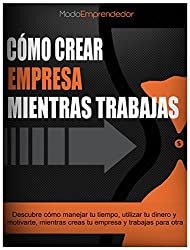
In the following article you will learn about the work smart while you work hard. Through 8 strategies you will know how to do more, finish everything you start and have free time at the end of the day.
We have always been told that we must work hard to achieve our dreams. That through hard work everything can be achieved. And it is true, if you want to achieve great things you must work hard.
Additionally, in recent years you have surely heard the phrase “Work smart, not hard” or its translation “Don’t work hard, work intelligently”.
This is also true. It is useless to work hard if you do not have the right tools and if you do not implement the correct strategies. That is, if there is no smart work, hard work will not give results.
So the phrase should be “Work hard AND smart”. “Hard and smart work”
Hard work alone doesn’t work.
To better understand this concept we will use the following example. The inflatable castles that you can rent for children’s birthdays. No matter how hard you blow to inflate them, without the right tool you will never get it done.
The same is the case with projects. Your skills, contacts, time and tools play a fundamental role. Even if you work day and night, just the fact of advancing slowly without seeing results will end up demotivating you to the point of giving up.
For this reason you must find a way to work intelligently.
Smart work. How to do it?
In order to work smart, you need to find certain shortcuts that will save you time and resources. On the other hand, you must recognize what your strengths are and work around them.
Find below 8 super effective strategies to master working smart.
1. Work in parts.
Instead of sitting down for hours to finish a project, break it down into small chunks and set break times. Studies have shown that working non-stop is not good for your health, nor is it good for your productivity.
Instead, give yourself the opportunity to work in pieces. Short periods in which you can concentrate 100% on what you are doing will allow you to keep a fresh mind for longer. Our brain is like a muscle, so it needs rest to recover and keep working.
2. Quit when you should.
Walking away from a complex task can seem counterintuitive. However, as we mentioned in the previous point, breaks can make you more productive.
Withdrawing from your work environment reduces the stress and pressure to which you expose your brain after long hours of concentration.
When we say quit, no we mean surrender and forget what you’re doing. What they want to propose is that you isolate yourself momentarily from the project or task. By doing so, your brain will continue to work on it unconsciously even when your conscious mind is trying to relax.
For this reason, solutions sometimes magically appear in our minds when we are not thinking about the problem. Moving away allows us to have a broader vision and therefore gives us the opportunity to find different answers.
Even if you don’t find a solution, you will surely return to work refreshed and with more energy.

3. Consider your strengths and weaknesses.
Smart work involves working around those things that you are good at.
You have strengths and weaknesses inherent in your being, which will affect the way you work. Focusing primarily on those things related to your experience and skills will help you move faster and build your confidence.
Delegate or work with other people with more experience than you in those areas that are difficult for you. Spend more time doing what you do best.
Also read: How to discover your strengths by following these 8 steps.
Also read: How to delegate according to the book the 7 habits of highly effective people.
4. Eliminate distractions.
This should be obvious. Nevertheless, there are distractions that you don’t even know and those are the most dangerous. Working with WhatsApp or Facebook open is potentially distracting, but your brain tricks you by telling you that you need to ask one of your contacts questions or maybe there is information on Facebook that you think you need.
When you least realize it, you are talking to another person about something unrelated to what you are doing. You didn’t mean to, but that’s how distractions work.
Just 20 seconds is enough to completely break your concentration. If this happens several times in an hour you will have wasted valuable time.



5. Practice multitasking.
In many articles we have said “No to multitasking” and we maintain this position. In this case we want you to practice it, but not in the usual way.
No matter how busy you are, there are always empty spaces in your day that you are not working on. It is in these spaces where we propose to apply multitasking.
Try to fill the spaces with productive work. For example: While having lunch, watch a tutorial or answer emails. While you drive, listen to audiobooks or podcasts. The more you learn in these negative spaces, the more you will be able to do overall.
6. Ignore the urgent and do the important.
Make a list of everything you have to do and organize it by priority. Put first those things that allow you to move faster. Those who are heavier. Ignore those little tasks that seem very urgent, but if you don’t do them they won’t have much impact.
Those emails with urgent tasks that seem easy and quick to do will only distract you from what is truly important. Ignore them while you finish what you are doing. If you can work offline much better. Remember point number 4.
7. Establish a time of day where you will stop working.
Surely there will be days when you will not be able to do everything you set out to do. You will have to accept that you will have many of those days and you will have to learn to live with it.
Taking time away from work to be with family and friends is crucial to fueling other areas of your life. Remember that there must be a balance between your professional life and your personal life. If you give time to only one, the other will be damaged.
On the other hand, establishing a time of day when you will no longer work will allow you to distribute your time in a better way. If you know that you have all day to finish a task, you will surely prolong it since you do not have any pressure to finish it.



8. Create spaces where you are not interrupted.
Be sure to design a work environment that is free of distractions. One you can focus on.
No email or social media, hide the phone and close the door. Make it clear to your coworkers that you are not going to be available or to your children and wife that you do not want to be interrupted.
Annihilate everything that destroys your concentration and creativity.
If you know of any other strategy that allows you to work intelligently, do not hesitate to leave it in the comments.
If you are really interested in creating your own business and want to find more information on this subject, buy our book “How to create a company while working: Discover how to manage your time, manage your money and motivate yourself while creating a company and working for another” , where you will find all the information you need to found your own company, without having to leave your job.



